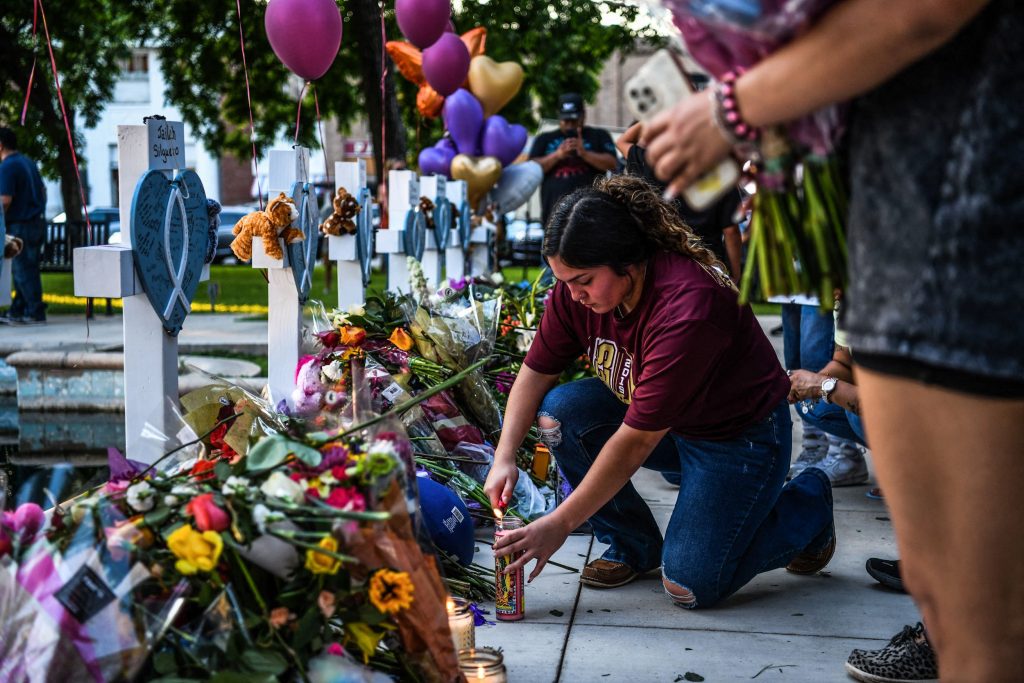On Tuesday, May 24, in Uvalde, Texas, an 18 year-old gunman murdered 19 elementary schoolers and two adults. Just over a week earlier, a white supremacist fatally shot ten Black people in a supermarket in Buffalo, New York. In the wake of such heinous and devastating acts of gun violence, the familiar rallying calls start for increasing mental health support programs in schools without actually providing money to schools to bolster their counseling programs.
A talking point of Gregg Abott and other right wing politicians against gun control is to say that the problem isn’t guns — it’s the lack of mental health support. This position drips with hypocrisy, as Abott cut $20 million from mental health services one month before the Uvalde massacre. Counselors in Texas school districts generally don’t receive enough funds to hire supportive assistance, and most schools are not able to maintain the recommended ratio of one counselor for every 250 students — a ratio that is already woefully inadequate. This is especially not possible when Texas ranks 44th nationally in their per-student funding average for K-12 students.
But this isn’t just a problem in red states. In New York, an audit found that 50 percent of school districts analyzed did not meet the recommended ratio of one school psychologist for every 500 students. Nineteen school districts reported having no mental health professional staff at all.
Forcing school counselors to take on large caseloads renders the services that they are able to provide increasingly inadequate, as they aren’t able to give students the appropriate attention, care, and follow-up that is required. Frequently, the police are employed to address mental health crises, especially harming Black and Latinx students. But the police cannot address the mental health needs of students. In fact, the Buffalo shooter was taken into police custody and then transported to a hospital for a 15-minute mental health evaluation after making a generalized threat at the high school he attended; the police are useless at best. And especially in the cases of Black people and/or the mentally ill, the involvement of the police can be fatal, as it was in the case of Nygil Cullins in Atlanta, who was murdered by police instead of being transported to a hospital for treatment for a mental health episode brought on by bipolar schizophrenia.
It is important to pause on this point: the call for increased mental health support is not and should not further marginalize or criminalize mentally ill people. These folks are most likely to be brutalized by the police, bullied in school, and on the receiving end of violent attacks. With that said, it is undeniable that young people today do need mental health services and support, especially after three years of coronavirus and isolation.
Educators have seen the ways in which the multiple crises of the Covid-19 pandemic, racist police violence, and the opioid epidemic, among other issues, have affected their students’ well-being, and have been raising the demand for more counselors for quite some time. In Minnesota, a city with one of the worst student-counselor ratios in the country, striking educators included increasing mental health support as one of the sticking points of their demands earlier this year. The Chicago Teachers Union (CTU) strike of 2019 fought to get a nurse and social worker in every school and won.
However, even as militant educators put forth the demand for more mental health services and fight for it, we are in a dire shortage of trained mental health professionals to fill these positions and serve students. According to data from March 31, 2021, over one third of Americans lived in areas with shortages of mental health professionals. A report from 2013 projected that there would be shortages of more than 10,000 mental health and substance abuse social workers and school counselors nationwide by 2025, a gap that has surely only widened in the intervening years. Biden’s proposed plan to forgive $10,000 in student loans barely makes a dent in the education debt mental health workers must take on as wages stagnate, not matching the pace of inflation, and the demands of the job only continue to increase. To expand the workforce of mental health professionals so that they can adequately support students, it is imperative to forgive all student loan debt, provide free high-quality public higher education, and raise wages.
Politicians’ tweets about sending prayers to the victims of families while they continue to gut public education of all resources and beef up police spending is absolutely atrocious. The students who have borne witness to such trauma deserve to have access to safe, healing spaces with trained professionals who can offer critical psychological first aid. And to keep all children safer in the future, mental health workers in schools need to have smaller caseloads and more support so that they can monitor and follow-up with students who may pose a risk to their fellow students’ and communities’ safety and well-being far before it reaches a point of crisis. Our children, who are constantly forced to feel unsafe in their schools, are at least owed that much.











